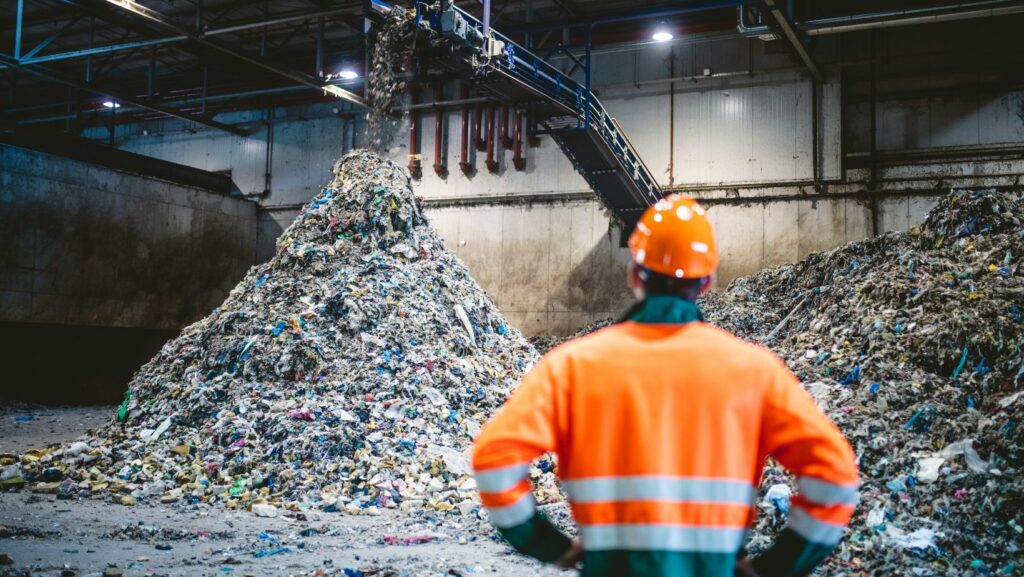Waste Management Business
In the early days of waste management, practices were primarily focused on waste disposal through methods like open dumping and unregulated landfills. These methods led to environmental degradation and health hazards. As awareness of environmental issues grew, innovative practices emerged. Businesses started implementing techniques such as waste segregation, composting, and incineration to manage waste more efficiently.

During the industrial revolution, waste management practices evolved further with the introduction of recycling programs and waste-to-energy initiatives. The emphasis shifted towards reducing waste generation and maximizing resource recovery. Companies began investing in recycling infrastructure and equipment to process recyclable materials. Innovations in waste collection and transportation also helped optimize waste removal processes.
In recent years, technological advances have revolutionized the waste management industry. Businesses are now leveraging advanced technologies such as Internet of Things (IoT), artificial intelligence (AI), and big data analytics to enhance waste collection, sorting, and disposal processes. IoT sensors are being used to monitor waste levels in bins, optimize collection routes, and reduce operational costs.
AI algorithms are improving waste sorting accuracy at recycling facilities, leading to higher recovery rates of valuable materials. Big data analytics play a crucial role in predicting waste generation patterns, enabling companies to better plan and allocate resources. Waste management businesses are increasingly adopting eco-friendly practices such as converting organic waste into renewable energy through anaerobic digestion and developing innovative recycling solutions.
Key Challenges Facing the Waste Management Industry
Regulatory hurdles encompass a significant challenge for waste management entities. Compliance with diverse environmental laws and regulations, such as waste disposal restrictions and recycling mandates, can pose operational complexities. Additionally, the evolving regulatory landscape demands continuous adaptation to ensure adherence to changing standards. Striking a balance between compliance and operational efficiency remains a pivotal concern for waste management businesses.
Efficient logistical and operational processes are essential for the smooth functioning of waste management operations. Coordinating waste collection, transportation, sorting, and disposal across various locations demands meticulous planning and execution. Challenges such as route optimization, facility capacity constraints, and technology integration for streamlined operations are critical aspects that require constant attention.

Addressing these logistical and operational hurdles is essential to enhance overall efficiency and effectiveness in waste management practices.
Recycling and resource recovery present significant opportunities for businesses in the waste management sector. By implementing effective recycling programs, companies can not only reduce the amount of waste sent to landfills but also create new revenue streams through the sale of recycled materials. Additionally, resource recovery processes such as composting can help generate valuable products like organic fertilizers, contributing to sustainability goals and environmental conservation efforts.
The concept of generating energy from waste offers a promising avenue for waste management businesses to explore. By harnessing technologies such as incineration or anaerobic digestion, companies can convert waste materials into energy sources like electricity or heat. This approach not only helps in waste reduction but also provides opportunities to tap into the renewable energy market, thereby promoting sustainability and diversifying revenue streams within the waste management industry.
Strategies for Sustainable Waste Management
To achieve sustainable waste management practices, businesses can focus on implementing greener technologies. By integrating eco-friendly solutions such as IoT systems, AI algorithms, and big data analytics into their operations, waste management companies can enhance efficiency and minimize environmental impact.

These technologies allow for real-time monitoring of waste disposal processes, optimized route planning for waste collection vehicles, and data-driven decision-making to improve overall waste management outcomes.
Collaboration between waste management businesses, local communities, and other industries is crucial for sustainable waste management. By fostering partnerships with community organizations, educational institutions, and businesses, waste management companies can enhance recycling programs, promote waste reduction initiatives, and raise awareness about the importance of sustainable waste practices. Engaging with stakeholders through educational campaigns, community clean-up events, and collaborative projects can lead to a more integrated approach to waste management that benefits both the environment and the community.

